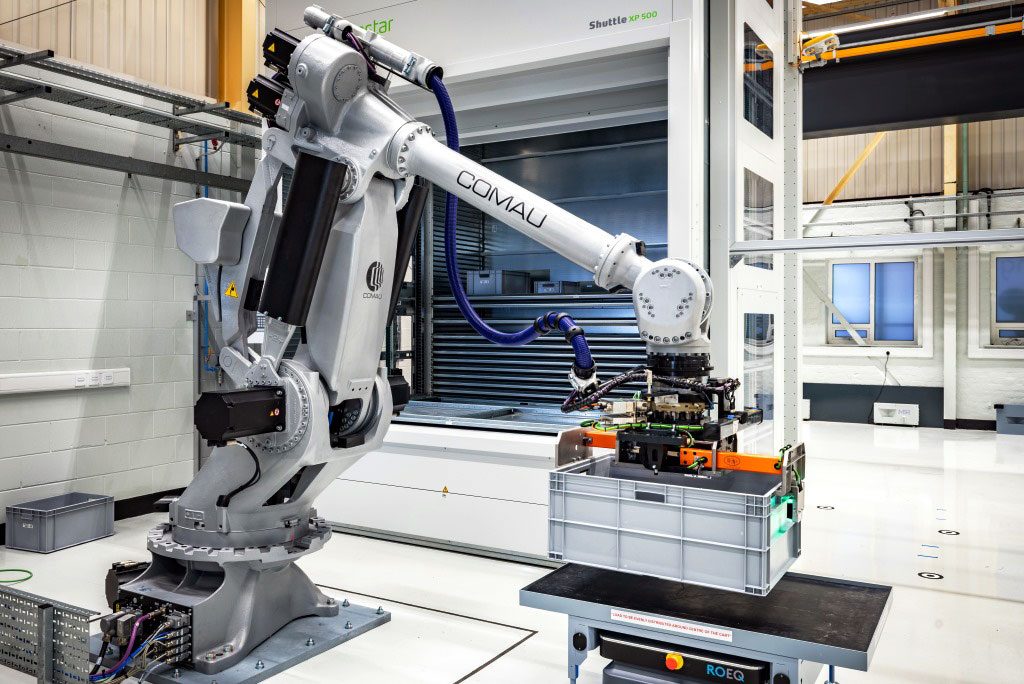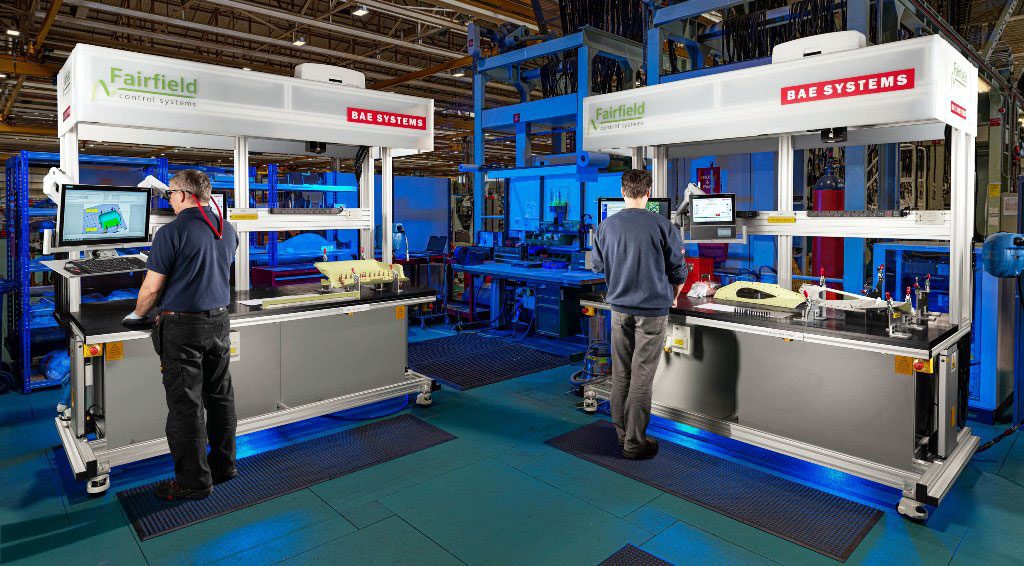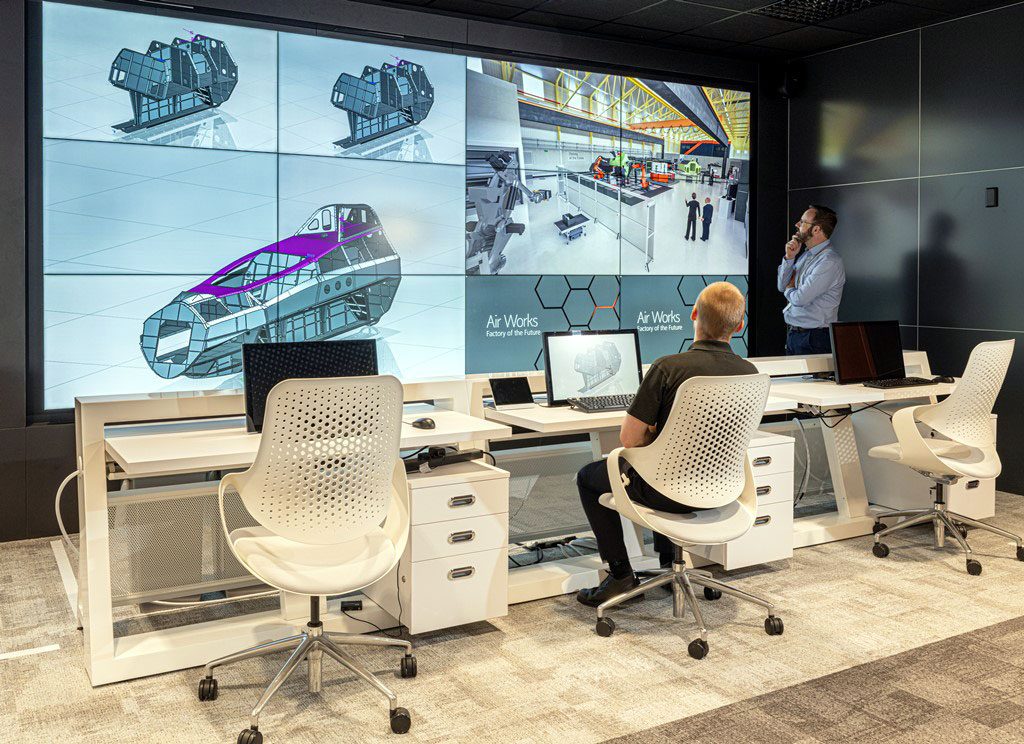
BAE Systems: new intelligent factory set to increase productivity and revolutionise combat aircraft production in the UK
13 July 2020 – A first of its kind industry 4.0 factory is applying game-changing digital technologies to advance manufacturing on the UK’s next generation combat air system, Tempest.
The new facility at BAE Systems’ site in Warton, Lancashire, is the result of a multi-million pound investment and collaboration with more than 40 blue chip and SME companies along with academic institutions. Harnessing the best of UK innovation, the Company has developed a digitally connected, intelligent factory for future military aircraft production.
Bringing together advanced manufacturing technologies, the factory will transform engineering processes. Automated robots, as well as virtual and augmented reality will increase speed, precision and efficiencies, as well as reduce the costs associated with the manufacture of complex military aircraft structures.

The factory also demonstrates a new approach to the way humans and machines can operate together. Cobotics and other flexible robot technologies remove the need for heavy, fixed, long-lead tooling and can quickly switch from the manufacture of one item or platform to another. Intelligent machines and off-the-shelf robotic technology from the automotive industry have been modified to operate at the precise tolerances required for military aircraft, which in some cases are less than a third the width of a human hair.
Such technology drives greater productivity by allowing operators to focus on more highly-skilled and strategic tasks and production managers to oversee operations from a fully digitised, virtual office.
The new facility underpins efforts of the UK-led Tempest programme to meet the UK’s ambition to remain at the forefront of the Combat Air sector by delivering more cost-effectively and in half the time of previous programmes.

Dave Holmes, Manufacturing Director for BAE Systems Air, said: “We’ve collaborated with the best of UK industry and academia to develop a cutting-edge facility that combines current and emerging technologies, ensuring the UK remains at the forefront of combat air technology development.
“Driving our manufacturing capabilities forward as we prepare for the fourth Industrial Revolution, will sustain and develop critical skillsets and ensure we can continue to deliver military capability to address future threats, whilst improving productivity and delivering value for money for our customers.”
Technologies inside the factory are already delivering benefits. The intelligent workstation, developed in collaboration with The University of Sheffield’s Advanced Manufacturing Research Centre (AMRC) and Fairfield Control Systems, is in use on the Typhoon production line. It uses a system which recognises operators and automatically delivers tailored instructions using ‘pick by light’ technologies. In addition, additive manufacturing technologies are being used in the production of Typhoon aircraft parts and assemblies. BAE Systems and the UK’s aerospace, defence, security and space sectors are world-leading, employing hundreds of thousands of people and supporting many more jobs through the supply chain across the country. Together the sectors generate £79 billion in turnover, supporting the economy while underpinning national security.
Photos and graphics courtesy BAE Systems



